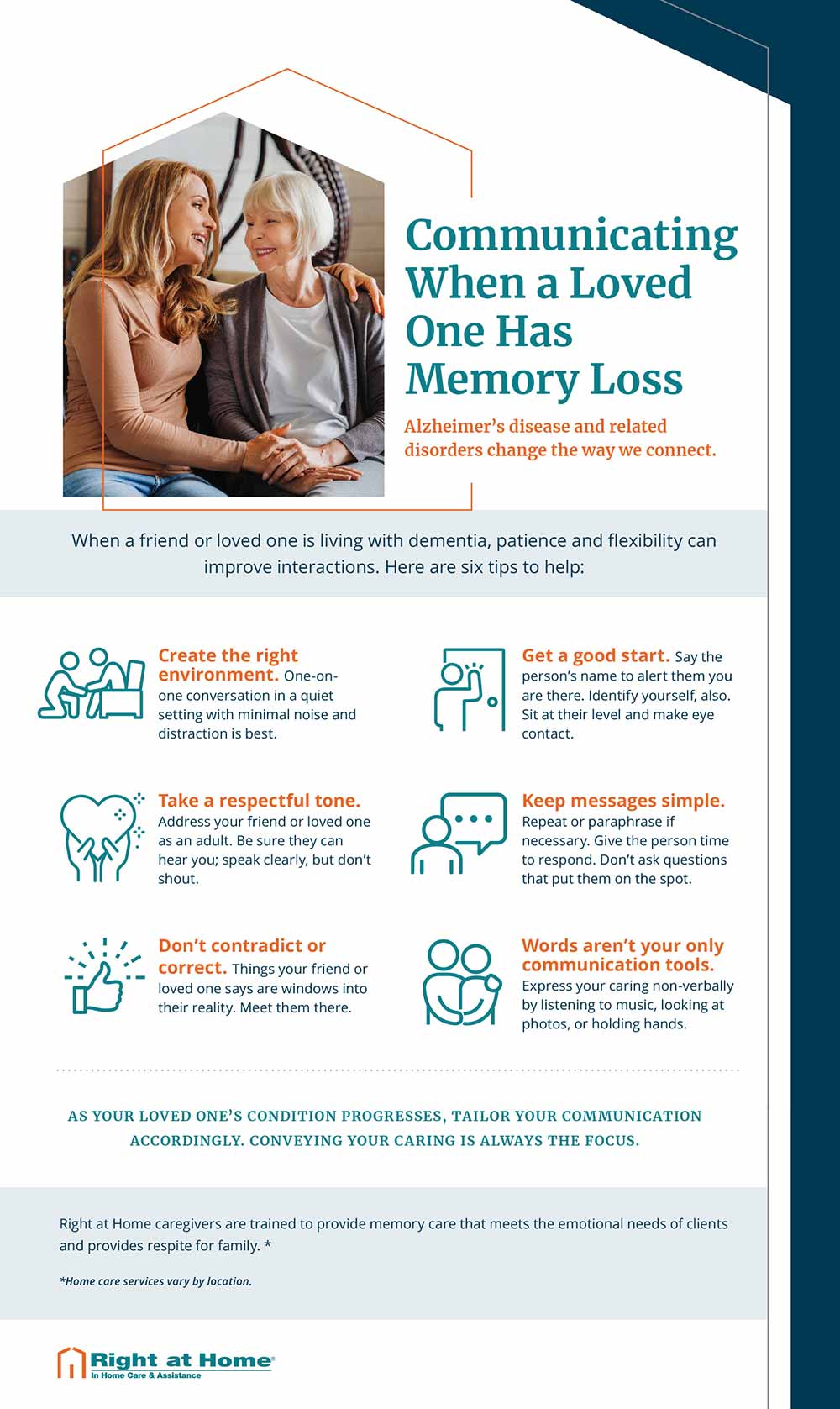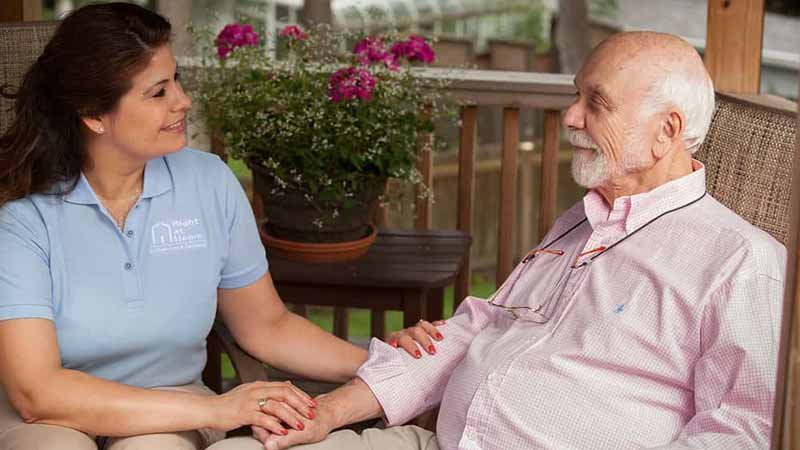

Infographic: Communicating When a Loved One Has Memory Loss
Family who are providing care for a loved one with Alzheimer’s disease or a related disorder report that effective communication can be one of the most difficult and emotionally distressing challenges they face. Linguists who have studied this issue say people with dementia and their caregivers often develop their own unique “language.” Here are some tips for adapting communication as the person’s condition changes.

Right at Home caregivers are trained to understand and meet the needs of people with memory loss, helping keep clients connected while providing respite for family.
Communicating When a Loved One Has Memory Loss
Alzheimer’s disease and related disorders change the way we connect.
When a friend or loved one is living with dementia, patience and flexibility can improve interactions. Here are six tips to help:
Create the right environment . One-on-one conversation in a quiet setting with minimal noise and distraction is best.
Get a good start. Say the person’s name to alert them you are there. Identify yourself, also. Sit at their level and make eye contact.
Take a respectful tone. Address your friend or loved one as an adult. Be sure they can hear you; speak clearly, but don’t shout.
Keep messages simple. Repeat or paraphrase if necessary. Give the person time to respond. Don’t ask questions that put them on the spot.
Don’t contradict or correct. Things your friend or loved one says are windows into their reality. Meet them there.
Words aren’t your only communication tools. Express your caring non-verbally by listening to music, looking at photos, or holding hands.
As your loved one’s condition progresses, tailor your communication accordingly. Conveying your caring is always the focus.
Right at Home caregivers are trained to provide memory care that meets the emotional needs of clients and provides respite for family.*
*Home care services vary by location.







